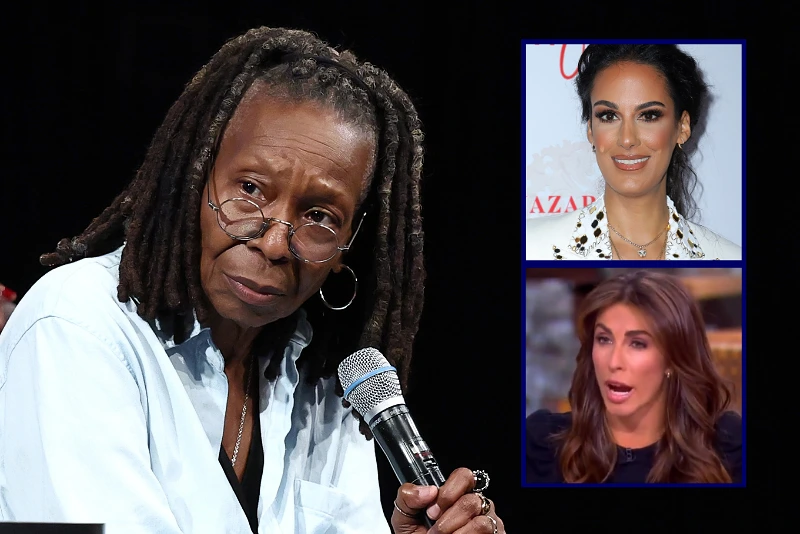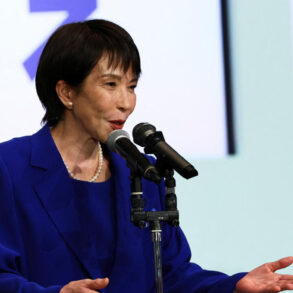On June 18, 2025, a heated debate on ABC’s The View ignited a firestorm of controversy when co-host Whoopi Goldberg claimed that life for Black Americans in the United States is “no different” than living under Iran’s authoritarian regime. The remark, made during a discussion about escalating tensions between Israel and Iran, drew sharp criticism from Iranian dissidents, co-host Alyssa Farah Griffin, and viewers online, who called the comparison “deeply misguided” and “offensive.”
The discussion began when the panel addressed President Donald Trump’s recent threats toward Iran’s Supreme Leader Ali Khamenei and Israel’s Operation Rising Lion, a military strike against Iran’s nuclear facilities. Alyssa Farah Griffin, who has Iranian heritage, highlighted the severe human rights abuses in Iran, stating, “The Iranians literally throw gay people off of buildings. They don’t adhere to basic human rights or international law.” She emphasized that Iran’s regime enforces extreme restrictions, such as punishing women for not wearing hijabs, often with violence or death, as seen in the case of Mahsa Amini, whose death in 2022 sparked nationwide protests in Iran.
Goldberg, however, countered by comparing the struggles of Black Americans to the oppression faced by Iranians. “I’m sorry, they used to just keep hanging Black people,” she said, arguing that systemic racism in the U.S. creates a similar sense of fear and oppression. When Griffin pushed back, insisting that “the Iranian regime today, in 2025, is nothing compared to the United States,” Goldberg doubled down, saying, “Not if you’re Black.” Her comments suggested that the historical and ongoing challenges faced by Black Americans are equivalent to the brutal realities of Iran’s theocratic government, where dissenters can be jailed, tortured, or executed, and women face severe punishment for minor infractions like showing their hair.
The backlash was swift and fierce. Iranian-American journalist Lisa Daftari told Fox News Digital, “It’s astonishing that Whoopi Goldberg would even suggest that life for Black Americans is somehow equivalent to living under the rule of the Ayatollah in Iran.” Dr. Sheila Nazarian, a plastic surgeon who fled Iran as a child after her family faced death threats, called Goldberg’s remarks “deeply misguided” and a dismissal of the “brutal realities faced by millions of Iranians.” Nazarian pointed out that Iran’s government executed nearly 350 people in the first four months of 2025 alone, a 75% increase from the previous year, according to Iran Human Rights.
Social media erupted with criticism. One user on X wrote, “Women in Iran are beaten, raped, and killed for showing their hair. So here’s Whoopi Goldberg equating her life as a multimillionaire celebrity in America to that.” Another commented, “How can she be this clueless? Her co-host, who has Iranian heritage, is trying to point out that women can’t even dress like she is on the show.” Even The View co-hosts Joy Behar and Sara Haines appeared uncomfortable with Goldberg’s stance, attempting to steer the conversation toward reason, though Goldberg remained steadfast.
While Goldberg acknowledged the U.S. as “the greatest country in the world,” her comparison struck many as tone-deaf. Critics argued that equating the systemic issues faced by Black Americans—real and serious as they are—to life under a regime that suppresses free speech, enforces strict dress codes, and executes dissenters undermines both struggles. Clay Travis, a commentator on OutKick, wrote on X, “Holy [expletive], Whoopi Goldberg said it’s not different to live in the US and Iran in 2025. How can you be this clueless?”
Goldberg’s remarks also sparked a broader debate about perspective and privilege. As a successful celebrity with a platform on national television, her comparison to the plight of Iranians, who lack basic freedoms, was seen by many as dismissive of the sacrifices made by those fighting for change in Iran. At the same time, her comments reflect a deep frustration with ongoing racial inequalities in the U.S., a point she tried to emphasize by referencing historical violence against Black Americans.
The controversy highlights the complexity of comparing different forms of oppression. While systemic racism remains a critical issue in the United States, the stark differences in freedom, safety, and human rights between the U.S. and Iran make such comparisons fraught. As Dr. Nazarian told Fox News, Goldberg’s remarks risk “staining the legacy of true heroes” like Mahsa Amini, who died fighting for basic rights. The debate on The View serves as a reminder that discussions about injustice require nuance and sensitivity to avoid minimizing the suffering of others.








